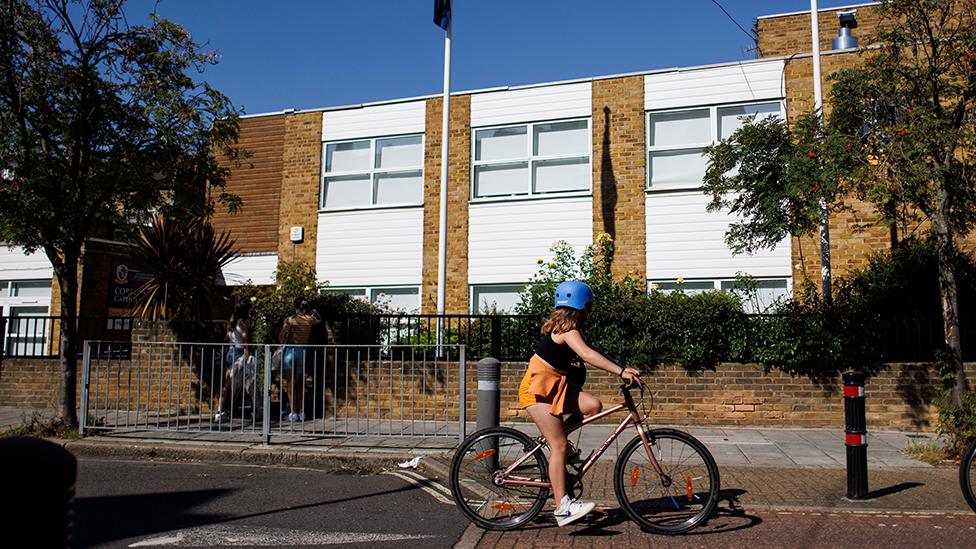'Our school has been crumbling for 20 years'
- Published
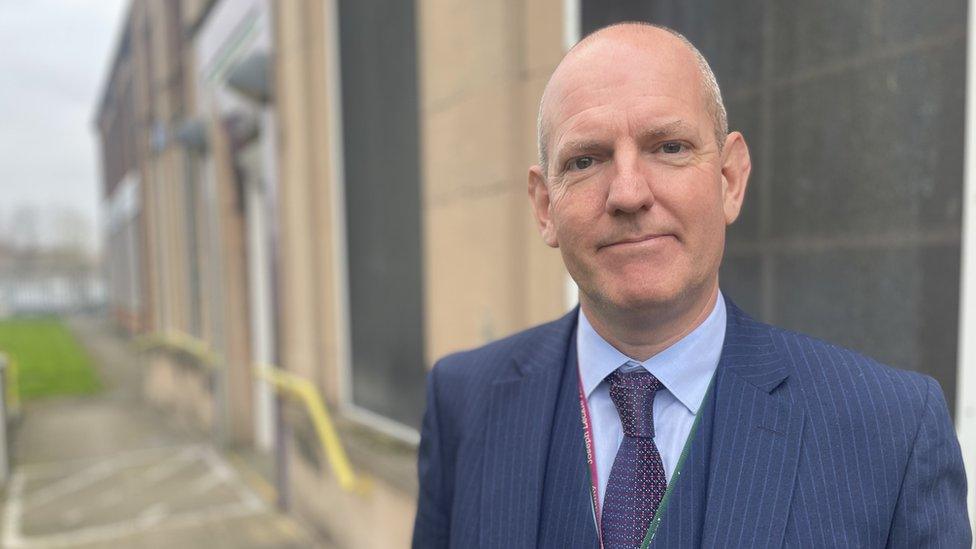
Head teacher James Ludlow wants the World War Two era building at Joseph Leckie Academy demolished
Schools fear they are "stuck" with leaking roofs and decades-old temporary classrooms, after the final spots to receive rebuilding cash in England were taken by those with dangerous concrete.
Most of the last places on a scheme to rebuild schools went to those with reinforced autoclaved aerated concrete (Raac), which closed schools this year.
One union said the government had "cut corners" by using the existing scheme.
The government says it has invested £15bn in school buildings since 2015.
The School Rebuilding Programme (SRP) aims to rebuild or refurbish 500 schools in a decade.
The first 99 were selected by the Department for Education (DfE) in 2021, having been identified as in the worst condition.
Local authorities and school trusts were then invited to nominate schools, in 2022.
About 300 were successful, bringing the total number of schools selected to 403 by December 2022.
And the 797 rejected hoped to be chosen in subsequent selection rounds, as - unlike in previous rounds - the government had not specified how they would be filled.
But for many, that hope vanished last month, after the government added a final list of 110 schools.
And 106 of those 110 have been confirmed, in recent months, to have Raac, BBC Verify analysis has found.
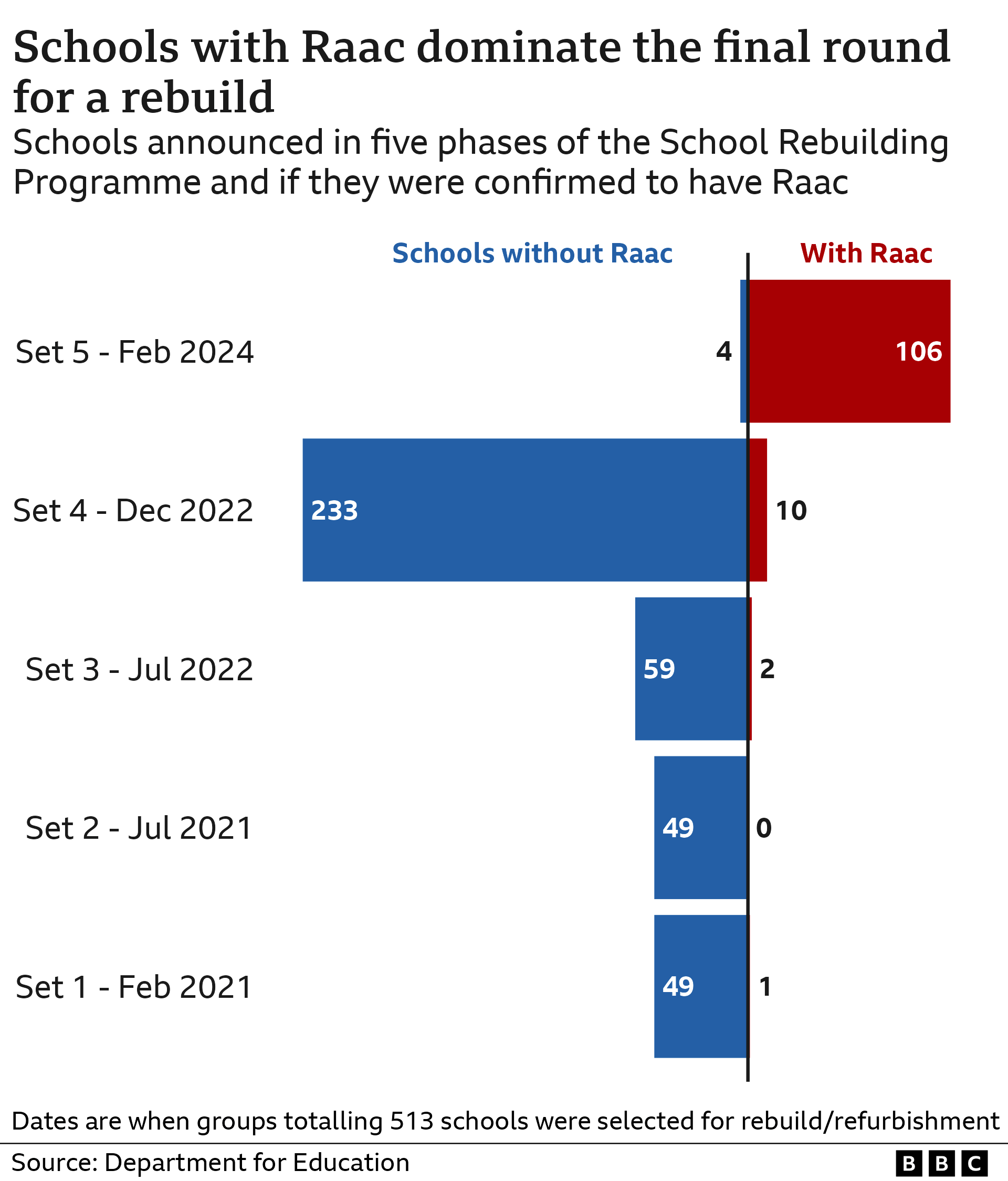
Joseph Leckie Academy, in Walsall, was rejected in 2022.
"This school's got everything else wrong with it - but it doesn't have problems with Raac," head teacher James Ludlow told BBC News.
Pupils campaigned for its 1930s building to be demolished and replaced in 2005 - but nearly 20 years later, bits of concrete are still crumbling from the sides of the building.
The roof still leaks.
Assemblies have to be livestreamed because the school hall is too small to fit whole year groups inside.
And half of the pupils use a makeshift canteen in a temporary building installed decades ago.
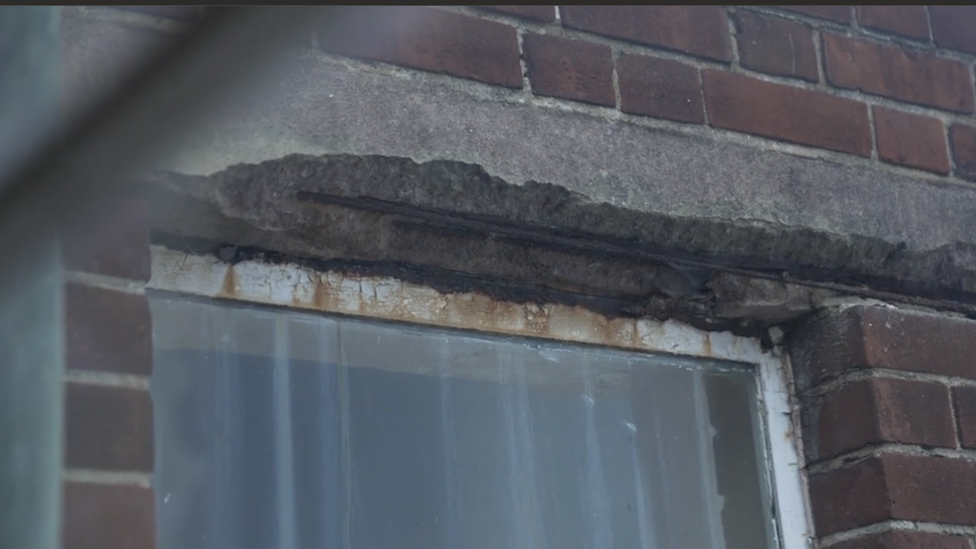
Concrete is crumbling from the side of the old building at Joseph Leckie Academy - but it has no Raac
"It feels really like we're stuck in a position where there is no avenue for us to secure the funding that we need," Mr Ludlow said.
"The School Rebuilding Programme was one of the last opportunities for us and we feel like that opportunity is now gone."
National Education Union general secretary Daniel Kebede said the government had "shunted Raac into an existing programme that was already inundated with applications", to "cut corners".
"The fact that schools are having to compete with each other in terms of which is the most dilapidated or dangerous is simply unacceptable," he said.
"And for schools with no light at the end of the tunnel, it is simply disgraceful."
Make cutbacks
Bellevue Place Education Trust operations director Richard Crompton thought Whiteknights Primary School, near Reading, would have a strong chance of making it on to the SRP eventually, having also been rejected in 2022.
All 420 pupils are taught in temporary buildings, dating back up to 30 years.
Replacing them would cost £4m, which Mr Crompton said was "unachievable", with the SRP the "only opportunity".
And now it would have to make cutbacks to continue maintaining temporary classrooms "at the end of their life".
Scalby School, in Scarborough, N Yorks, is one of only seven of the 106 schools with Raac added to the SRP last month to have applied in 2022, citing asbestos in ageing buildings among its concerns.
Since being told it had Raac, last year, pupils have been learning off-site and metal ceiling props line the corridors.
Head teacher Chris Robertson said it was "about time" the school was added to the SRP.
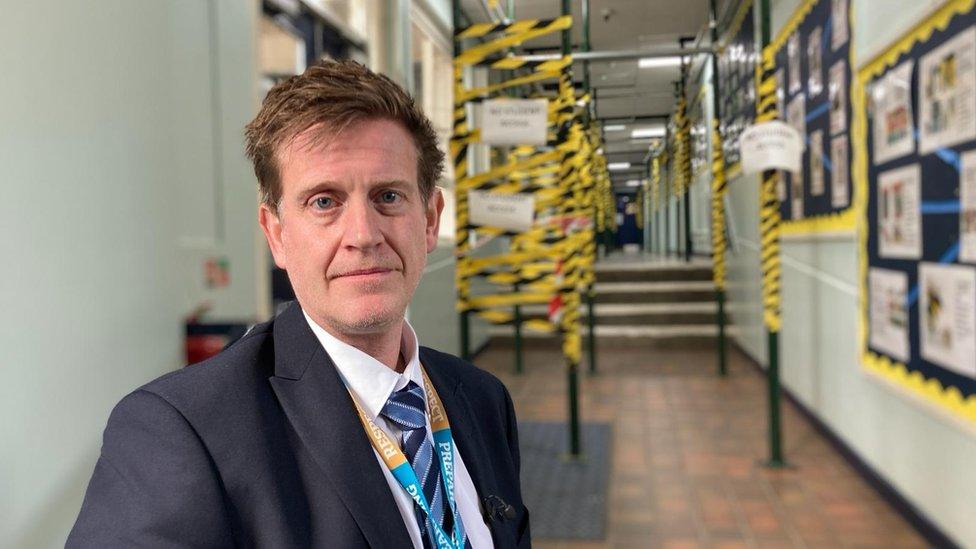
Scalby School was rejected in 2022 - before head teacher Chris Robertson knew it had Raac
"Over the past two terms, we've done the best to try and stabilise things and make it normal for students," he said.
"In no way is this normal."
Asked when the rebuilding work would start, Mr Robertson said: "They [the Department for Education] have talked to us about the fact that we will be seen as a priority given the significant issues that we've got here."
A National Audit Office report last year estimated 700,000 children were being taught in unsafe or ageing school buildings in England.
Last month, Education Secretary Gillian Keegan told BBC News that total was based on the number of bids for new buildings submitted by schools and did not necessarily reflect their condition.
A DfE official has since told BBC News it had completed its programme to identify Raac "in a matter of months", had now confirmed how it would pay to remove it, and any future funding or programmes would be determined via a government spending review.
Bridget Phillipson, Labour's shadow education secretary, said: "The Conservatives need to tell schools without Raac but no less deserving of renovation, when they can expect to be rebuilt."

Is your school affected by the issues raised in this story? Share your experiences by emailing haveyoursay@bbc.co.uk, external.
Please include a contact number if you are willing to speak to a BBC journalist. You can also get in touch in the following ways:
WhatsApp: +44 7756 165803
Tweet: @BBC_HaveYourSay, external
Please read our terms & conditions and privacy policy
If you are reading this page and can't see the form you will need to visit the mobile version of the BBC website to submit your question or comment or you can email us at HaveYourSay@bbc.co.uk, external. Please include your name, age and location with any submission.
- Published8 February 2024
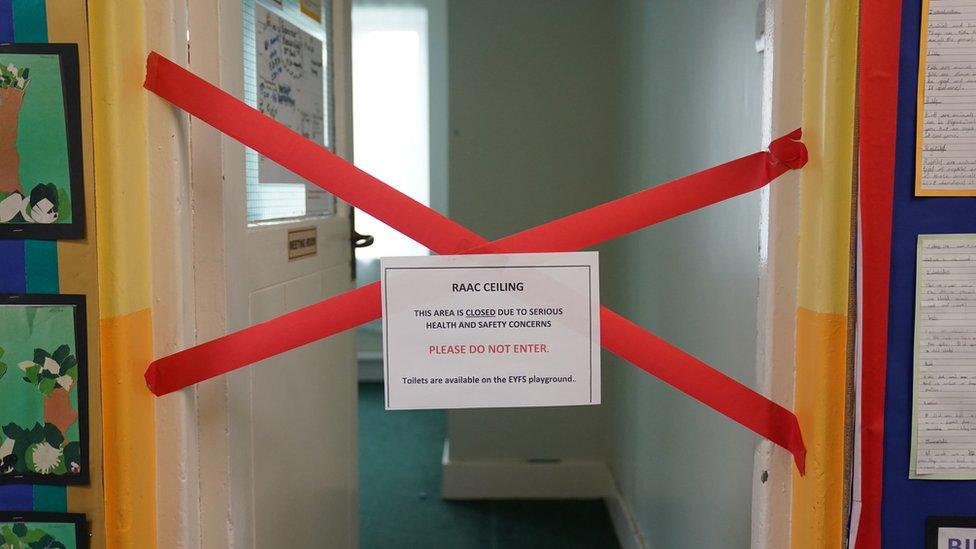
- Published3 January 2024

- Published19 September 2023
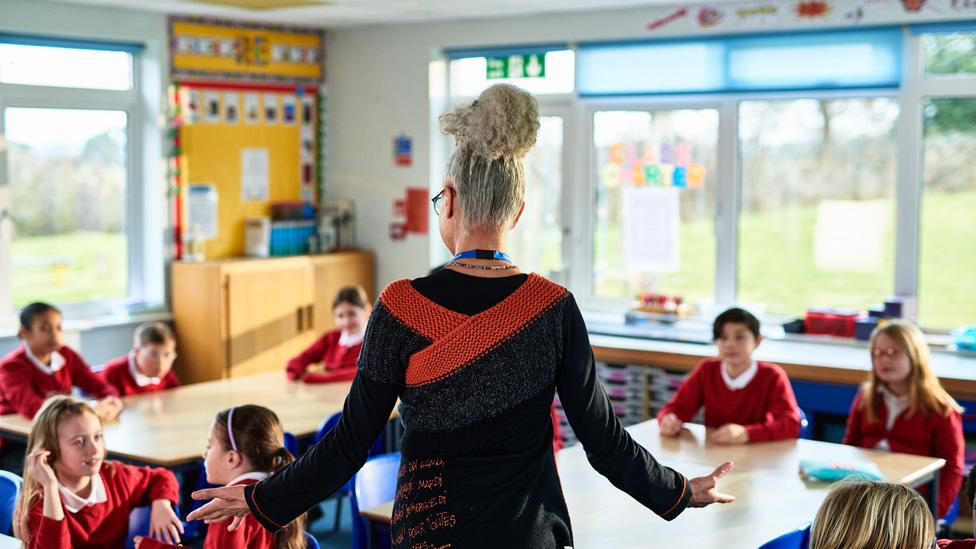
- Published11 October 2023

- Published13 February 2024
